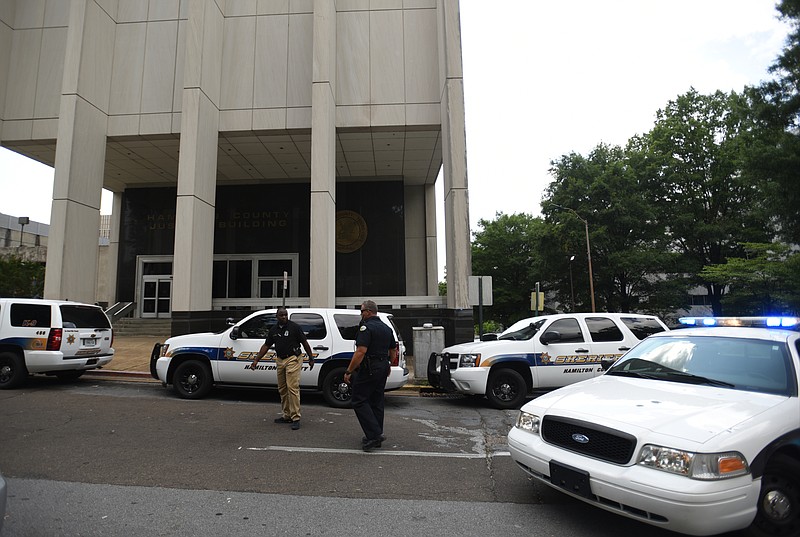View other columns by David Cook
Hamilton County faces what seems like an economic and ethical crossroads.
To the left, our schools.
To the right, our downtown county jail.
Addressing the problems within each is not a matter of if, but when. Our public schools face an infrastructure and identity crisis: a backlog of $382 million in deferred repairs and new needs, along with growing fragmentation as multiple municipalities consider educational secession and forming their own districts.
Our downtown jail? It has been slowly disintegrating for years, just about the only part of downtown - minus College Hill Courts - the angels of renovation have passed over.
So in the coming months, elected officials will discuss schools and jails.
Yet when they talk of one, they are also talking of the other.
To talk of education is to speak also of jails and prisons.
And to speak of jails and prisons is also to talk about education.
Schools and jails are part of the same system, two sides of the same coin. The failure of one leads to the creation of the other.
"The prison population is an artifact of the education system," said Dr. Ken Chilton of Tennessee State University. "It's not a 1-to-1 relationship, but we know education quality and outcomes are highly correlated to incarceration. Do local leaders understand the trade-offs?"
Investing in education reduces crime, sometimes at a $10-to-$1 savings, research shows. Children of incarcerated parents are more likely to drop out of school. And what's the future for dropouts?
"56 percent of federal inmates, 67 percent of inmates in state prisons, and 69 percent of inmates in local jails did not complete high school," claims a 2013 report from Alliance for Educational Excellence, citing U.S. Bureau of Justice statistics.
Funding schools is an act of anti-crime hope, an investment in the social fabric, in the things that promise transformation, not criminality.
Therefore, so many of us shout: Our money should go to schools first, and jails second. For the longest time, I would have used the strongest language to proclaim that.
Then I visited the jail.
God have mercy.
Inmates crammed 40 to a room meant for 10. A wild, panicky look in the eyes of many; a deadened, defeated look in the eyes of others. One man stood naked, banging on the walls. Another slammed his head against the wall.
They shouted at us. There was the smell of violence. The sense of brokenness and constant deterioration.
It is one thing to punish a man for his crime; it is another to make him forget he is human.
And that was just the first floor.
Within moments, my respect quadrupled for the men and women who work there, day in, day out. (For how much money?) The jail is understaffed by some 40 jailers. Overtime is often mandatory. One guard said his tour in Iraq was easier than working here.
"I would definitely believe that," said Sheriff Jim Hammond.
Hammond welcomed my visit, and yours, too, if he has the staff to accommodate you. Desperate and doing all he can for funds to renovate and repair, he wants Chattanooga to see our jail because once you do, you realize that no jail - at least not in our city - should look like this.
"There is an issue of human rights and human dignity," said Hammond, "when you jam 20 to 30 people in a room meant to hold four or five."
The downtown jail is our de facto mental hospital, our tragic apothecary, often the only place our mentally ill can go.
"We are the mental illness hospital," he said.
On Easter Sunday, let us recall that the crucified Christ was not alone in his death; to his right and left were prisoners. He did not neglect them.
Nor should we.
Can the Best Town Ever, known for its gig economy and tourism industry, adequately fund both schools and the jail, two cornerstones of our social contract? Will our tourist-industry tide lift all boats?
What does it mean if we can't?
Or won't?
David Cook writes a Sunday column and can be reached at dcook@timesfreepress.com or 423-757-6329. Follow him on Facebook at DavidCookTFP.

